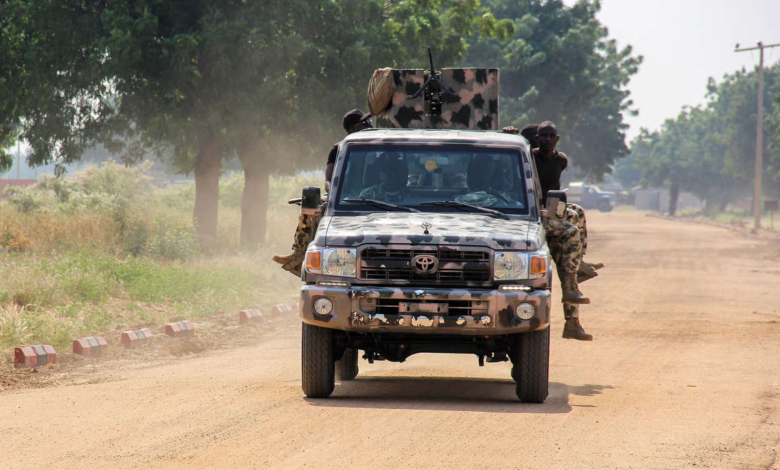Military Strides Lead To Decline In Civilian Casualties In Northeast Nigeria
The decline in Boko Haram attacks and terrorism-related death is linked to counter-insurgency operations and the posture of ISWAP to minimise casualties amongst civilians.

Northeast Nigeria recorded a significant reduction in Boko Haram related deaths in 2021 as the terror group incurred losses from counterinsurgency operations and ISWAP’s expansion.
The recent Global Terrorism Index report produced by the Institute for Economics and Peace ranked Nigeria sixth. The country experienced a decline in deaths attributed to Boko Haram and Islamic State in West Africa Province (ISWAP).
“Total deaths from terrorism in Nigeria fell to 448 in 2021, the lowest level since 2011. Terror-related casualties dropped by almost half compared with the previous year,” said the report.
The number of terrorist attacks in the country has increased by 49 per cent between 2020 and 2021, with ISWAP claiming 36 per cent of these attacks while Boko Haram was responsible for eight per cent and 44 per cent was not attributed to any group.
ISWAP, one of the most active affiliates of the Islamic State, was reported to have overtaken Boko Haram to become the deadliest terror group in Nigeria. The group recorded their highest number of incidents since 2017.
Decline in Boko Haram incidents
According to the Global Terrorism Index, the decline of Boko Haram continued into 2021, with Boko Haram responsible for only 69 deaths, a decrease of 77 per cent from the previous year.
“This is the lowest number of deaths by the group for a decade. Boko Haram’s decline has resulted in a substantial improvement in terrorism in Borno State, which experienced a decrease of 71 per cent in terrorism deaths compared with the prior year.”
The report also stated that the fall of Boko Haram coincided with multiple factors, particularly the impacts of the death of its leader Abubakar Shekau during a confrontation with ISWAP in May 2021.
Other factors that contributed to the group’s weakening were counter-terrorism efforts by the Nigerian government and external military forces.
ISWAP expansion threat
The Islamic State affiliate was responsible for 39 per cent of all attacks in the country in 2021. However, deaths associated with ISWAP have continued to decline from 10 deaths per attack in 2018 to almost three deaths per attack in 2021.
According to details of the report, ISWAP “was responsible for Nigeria’s deadliest attack of 2021” after the killing of over 30 soldiers at an army base in Borno.
Military personnel constitute the main targets of the group’s attack, the report added that the military was the target of over half of all attacks, “resulting in 45 per cent of casualties attributed to the group in 2021”.
The report also highlighted that despite the civilian death toll decreasing, ISWAP continues to increase its attacks on civilians, from 11 in 2020 to 19 in 2021.
The group is also expected to continue the campaign to integrate members of the Boko Haram group to bolster its fight against the Nigerian government’s counter-terrorism efforts.
What the trend means
HumAngle understands that ISWAP’s integration attempts encountered a brick wall with mass defection and surrender of Boko Haram members unwilling to join its ranks or the resistance against the group.
Some Boko Haram members oppose ISWAP onslaught and control through resistance activities around the Mandara Mountain range and Lake Chad.
The reduction in civilian casualties in the region is linked to the decline of Boko Haram as well as the ISWAP doctrine of winning hearts and minds while maintaining a brutal approach to categories of people considered as targets.
In the long term, ISWAP’s proto-state activities could constitute a significant threat to security and stability in the region.
Support Our Journalism
There are millions of ordinary people affected by conflict in Africa whose stories are missing in the mainstream media. HumAngle is determined to tell those challenging and under-reported stories, hoping that the people impacted by these conflicts will find the safety and security they deserve.
To ensure that we continue to provide public service coverage, we have a small favour to ask you. We want you to be part of our journalistic endeavour by contributing a token to us.
Your donation will further promote a robust, free, and independent media.
Donate HereStay Closer To The Stories That Matter




